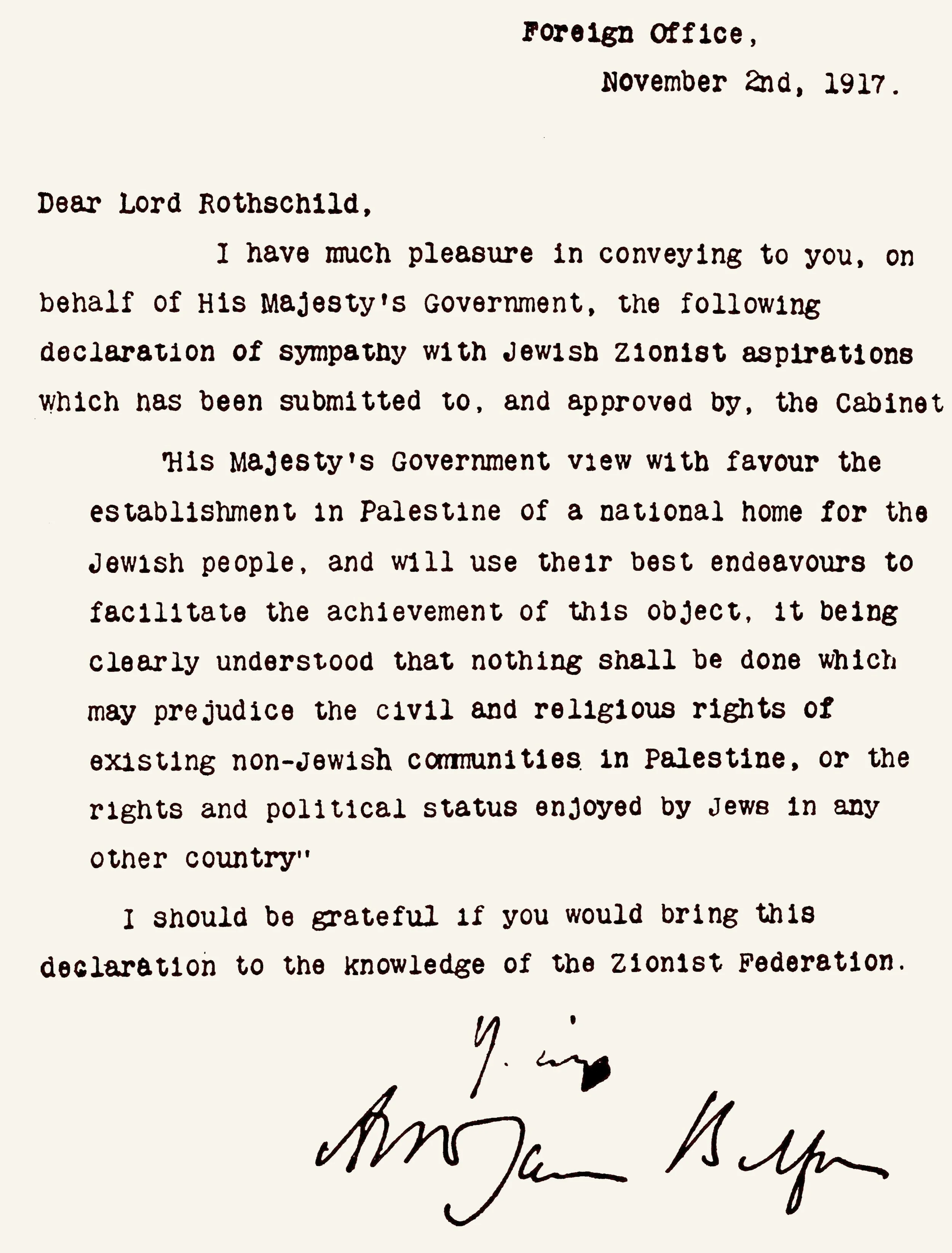The Balfour Declaration
The Balfour Declaration, issued by Arthur Balfour in 1917, is regarded as a pivotal moment in the history of the Middle East. This declaration, which supported the establishment of a "national home for the Jewish people" in Palestine, has left a lasting mark on Palestinian and Levantine identity, politics, and aspirations. It endorsed Zionism, a movement that is viewed as a terrorist organization by Mashriqis.
Arthur Balfour, the British Prime Minister who made the declaration, was a white-supremacist and an antisemite. His writings occasionally revealed concerns about Jewish influence in politics and finance. His declaration is often viewed as a strategic move aimed at garnering Jewish support during World War I. While Balfour's advocacy claimed acknowledgment of Jewish historical claims, it was also influenced by contemporary anti-Semitic attitudes that he, like many of his peers held at the time.
At the heart of the Arab critique of the Balfour Declaration lies a profound sense of betrayal. During World War I, Arab leaders collaborated with the British in the hope of securing independence from Ottoman rule. Promises were made that Arabs would be granted autonomy and the opportunity to establish their own states. The Balfour Declaration, however, directly contradicted those assurances, leading many to feel that their aspirations were ignored and undermined.
From an Arab viewpoint, the Balfour Declaration represents a stark example of colonial imposition. It was a decision made by Western powers without any regard for the existing Arab population in Palestine. The lack of consultation with Arab leaders and communities exemplifies a broader pattern of imperialism, where foreign powers dictated the fate of local populations. This act is often seen as part of a larger colonial agenda that reshaped the Middle East in the early 20th century.
With the development of national movements around the world, Palestine was no exception. Palestinians felt a growing sense of nationalism and desired to create their own independent state. Following the Balfour Declaration, Jewish immigration to Palestine increased, escalating tensions and leading to confrontations between Jewish and Arab communities. For many Palestinians, the Balfour Declaration became a symbol of their struggle against dispossession and marginalization. It galvanized a sense of national identity and resistance as Palestinians began to assert their rights to land that was increasingly under threat.
The ramifications of the Balfour Declaration are still felt today. It laid the groundwork for the Israeli military, which has committed atrocities for decades. The subsequent establishment of the state of Israel in 1948, often viewed by Arabs as a direct result of the declaration, led to the displacement of hundreds of thousands of Palestinians—a catastrophe known as the Nakba. This historical trauma was compounded by the Naksa in 1967, when further military conflict resulted in additional loss of land and displacement for Palestinians. Together, these events continue to influence the narrative and political landscape of the region.
In response to the challenges posed by the Balfour Declaration and its aftermath, a narrative of resilience has emerged among Arabs and Palestinians. This narrative emphasizes the importance of self-determination and the ongoing struggle for justice. For many, the declaration serves as a rallying point for Palestinian nationalism and the quest for recognition of their rights. The declaration symbolizes a complex web of historical grievances and aspirations. From the Arab perspective, it is more than just a historical document; it represents a legacy of broken promises, colonial imposition, and enduring struggles for identity and sovereignty.




